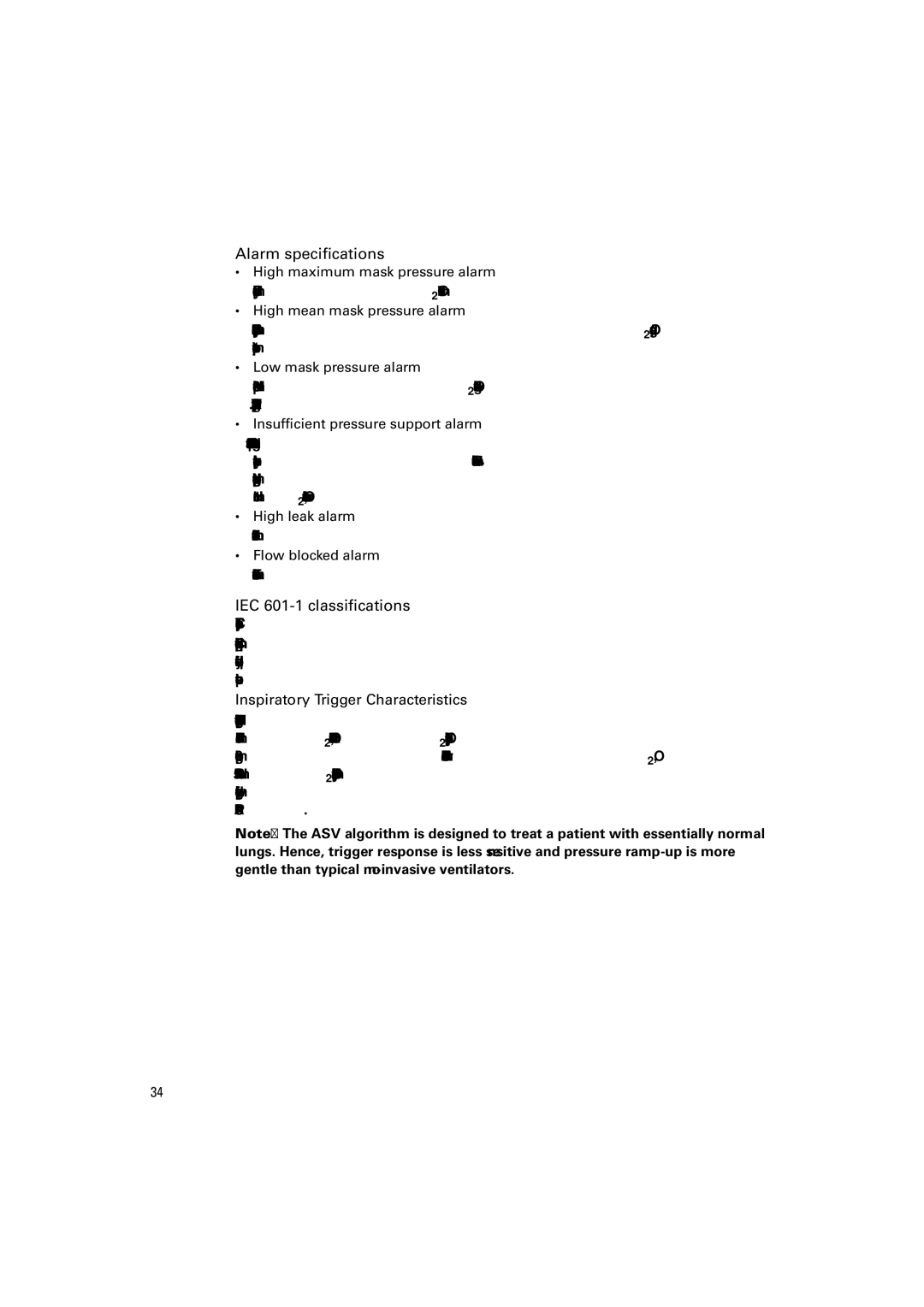VPAP Adapt SV specifications
The ResMed VPAP Adapt SV is a cutting-edge device designed to improve the quality of life for patients suffering from complex sleep apnea conditions, including central and obstructive sleep apnea. It combines advanced technology with user-friendly features to provide effective therapy while ensuring maximum comfort for users.A standout feature of the VPAP Adapt SV is its Adaptive Servo-Ventilation (ASV) algorithm. This proprietary technology continuously monitors a patient’s breathing patterns and adjusts the airflow accordingly. By providing just the right amount of pressure support during inhalation and maintaining a minimal backup rate during exhalation, the device ensures optimal ventilation while minimizing the risk of over-ventilation. This responsiveness is crucial for patients who may experience fluctuating airway resistance and varying degrees of respiratory events.
The VPAP Adapt SV is equipped with a sophisticated data management system that tracks treatment progress in real time. It automatically collects information about usage, leak rates, and overall pressure settings, which can be easily accessed and reviewed by healthcare providers. This data-driven approach facilitates personalized treatment adjustments, empowering both patients and clinicians to make informed decisions.
Comfort is enhanced through various design features, including a quiet operation mechanism that minimizes noise disruption during sleep. The device offers a range of pressure settings that can be tailored to individual needs, allowing for a comfortable therapeutic experience. The VPAP Adapt SV is compatible with ResMed’s range of CPAP masks, which are ergonomically designed to fit securely without compromising comfort.
Another notable characteristic is its user-friendly interface, which simplifies the setup and adjustments needed for optimal therapy. Patients can easily navigate through various options on the bright display screen, making it accessible for users of all ages.
Additionally, the VPAP Adapt SV’s compact design makes it a portable option for those who travel frequently. It comes with a carrying case and can operate on both AC and DC power sources, ensuring that patients can maintain their therapy wherever they go.
In conclusion, the ResMed VPAP Adapt SV represents a significant advancement in respiratory therapy. With its Adaptive Servo-Ventilation technology, comprehensive data management, and focus on patient comfort, it provides a holistic approach to managing complex sleep apnea, making it a preferred choice for healthcare providers and patients alike.
